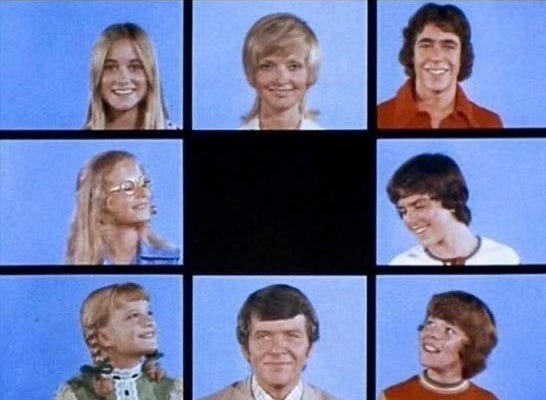The gift of indifference
Tips, tricks, inspiration, and encouragement for storytellers of all stripes
Greetings from Sarasota—
There’s been a theme running through my last few zoom workshops and writing classes. A common “pain point,” as the marketers and biz folk call it.
On the storytelling zoom, when my fellow coaches and I suggested recording every talk, keynote, and performance—so as to review yourself later—the reaction rippled across my Brady-Bunched screen…
I hate watching myself on video!
I’m so self-conscious!
I look stupid!
I hate the sound of my voice!

In my writing classes, each student comes up to the front, sits in the “throne,” and reads their piece. Volunteers can be hard to come by. Never mind reading first. Most resist reading publicly at all, especially in the early weeks.
My workaround? I bought some numbered plastic chips. I open every class with a prompt, the students dive into their timed writing, and I walk around randomly handing out chips. Reading order established.
Even so, when someone flips the “7,” I hear a relieved whoosh of breath. When someone else flips that “1,” I hear a muttered curse.
And almost every week, after one reader shares something amazing (and that’s honestly pretty much everyone every week), another reader will harrumph as they walk up, hand back their chip, and say, “I have to follow THAT?”
We are so hard on ourselves. We give ourselves so little grace.
Partly that is because humans love, love, love to criticize and correct each other.
I read an essay once by a computer programmer who would post questions and requests for help in public forums, like Reddit. He would get almost no response. His workaround? He created a fake account, went in, and gave what he knew was an incorrect answer to his own question.
Boom. Commenters swarmed, correcting the intentionally wrong answer.
Self-judgment is even more insidious. On Day One in all my classes and workshops, I offer a gesture. This started in my acting classes, but applies everywhere. I have everyone lift their arm, wipe it across their forehead as if wiping sweat off their brow, and then extend and fling that arm out, as if flipping the sweat off their fingers.
The gesture means: This might be crap or it might be awesome, I’m scared to death but I’m gonna do it anyway, everyone here is just doing their best, and here I GO!
By offering this release-your-dang-ego gesture, every time someone says “I hate my voice” or “I have to follow THAT?” or “This’ll probably be bad,” I don’t even have to speak. I just wipe the invisible sweat of self-judgment off my brow. They see it, they chuckle, they do the gesture themselves, and they hunker down into the work.
You know who doesn’t judge you? Who never offers unsolicited advice? Who doesn’t care a whit about correcting you?
The camera. The microphone.
Their coldness is not judgment. It’s indifference. They simply report back, more accurately than a mirror, because you don’t get flipped 180.
What a gift.
I was taught in Acting for the Camera class to think of that unblinking lense as my best friend in the world. Same with the mic.
Because they give back to you exactly who you are, without judgment. And the only way to improve is to accept yourself as you are.
Appreciate the sound of your voice—after all, only we get the skull-buzzing version. Everyone else hears us accurately.
Appreciate yourself on film. If your goal is to make an impact on the audience, then why not scour every moment of that deliciously indifferent camera’s offering?
Once you embrace that honest self-appreciation—and I’m not saying it’s easy, but boy oh boy is it freeing—then and only then will you be able to improve whatever it is you’re working on.
Speaking of pain points…
I’m more than happy to take requests!
If there’s a storytelling topic or issue you’d like me to address—writing, acting, directing, whatever—email me directly at jason@jasoncannon.art.
If I don’t have a ready answer, I’ll make it my mission to go find one.
100 Plays
Don’t forget to check out the most recent episode of 100 PLAYS!
In this episode, I talk about the daring it takes to direct yourself as an actor, the generosity of a Tony Award-winning playwright, and how to give your story away.
You can listen on the Substack App, and all episodes are also available on Apple or Spotify.
Or, if you want to put a face with a voice, you can watch the video version of this podcast over on YouTube.
The Page&Stage Podcast
The next episode of the PAGE&STAGE PODCAST will land in your inboxes on Monday.
Alice Manning joins me to explore the healing power of storytelling and the role of empathy in both art and life. She shares her journey from early influences to self-producing solo shows, highlighting how humor often springs from tragedy. Alice also discusses her transformative work leading storytelling workshops in prisons, fostering healing and connection among inmates. This inspiring conversation showcases Alice’s passion for using performance as a tool for personal growth and social change.
You can listen on the Substack App, and all episodes are also available on Apple or Spotify.
And if you want to put faces with voices, the video version will be available over on YouTube.
Before I sign off, a quick reminder that you can comment on this newsletter. I do my absolute best to respond to every comment, so if something I’ve offered above tickles that question/comment/complaint nerve in your reader-brain, I’d love to hear about it. Let’s get into a fun conversation!
Thanks as always for reading, and have a great weekend—
Jason “Workarounder” Cannon


Siri made a mistake on my text, should be “diction”, not addiction.
Excellent! This applies to singers as well who need to assess their breathing, phrasing, addiction, open throat,, eye contact, sharp, or flat notes, gestures, etc.